Jensen Huang, head of the $4.2 trillion tech empire Nvidia, has a strange "confession": he can't watch an entire movie.
The reason lies not in the content of the film but in his own brain - a thinking machine that never stops. Even in moments when he should be relaxing, his mind is still busy working on lines of code, chip architectures and strategies for the future of artificial intelligence.
“I can sit down and watch a movie and not remember anything because my mind is busy with work,” he admitted in a conversation with Stripe CEO Patrick Collison.
This candid confession, now going viral again, is more than an anecdote. It is a window into the extraordinary intensity that has propelled Nvidia to the top of the world . At 62, when many people might be thinking about retirement, Jensen Huang works “from the moment he opens his eyes to the moment he goes to sleep,” seven days a week. For him, there is no such thing as a “work-life balance,” only the truth that “work is life.”
There’s no denying that this near-absolute dedication is one of the main drivers behind Nvidia’s meteoric rise. From a company specializing in graphics cards for gamers, Nvidia has transformed itself into a giant dominating the AI field, becoming the company with the largest market capitalization in the world, surpassing even giants like Microsoft and Apple.
The $4.2 trillion figure—more than Meta and Amazon combined—is the most telling. The company’s stock has risen 1,600% over the past five years, a near-unprecedented performance.
But what is that success built on? Sleepless nights, broken vacations, and a brain that's always in "work mode."
But it would be a mistake to think that Jensen Huang’s job is all about endless meetings and boring emails. According to him, his most important role is to imagine and dream about the future.
“Sometimes I envision the future and think: What if I do this, and then that? It’s still work, but it’s work of dreams and aspirations,” he shared.
Huang’s work is a constant thought process, a never-ending dialogue with the future. He’s not just running a company; he’s trying to create a new reality where AI is the foundation of everything. His obsession comes not just from the pressures of running a business, but also from a deep belief that his company holds the key to humanity’s next technological revolution.
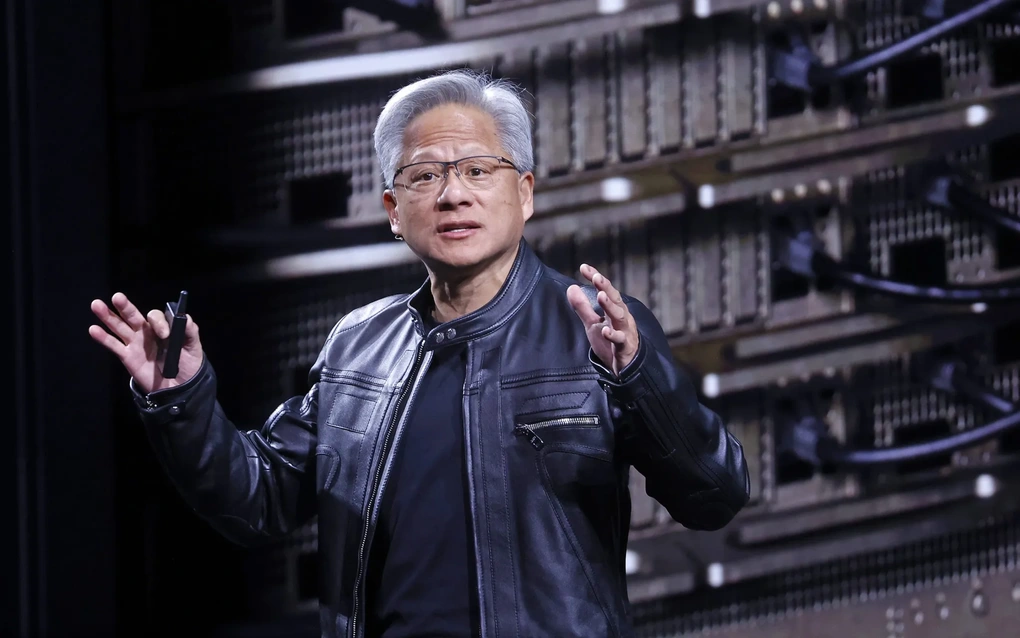
For CEO Jensen Huang, a full movie becomes a "luxury" as his brain constantly thinks about the future of the trillion-dollar industry (Photo: Getty).
“Warrior” culture and the dream of…rest
Jensen Huang’s work-to-live philosophy applies not only to him but also to Nvidia’s culture. This is not a place for those looking for a 9-to-5 job.
There is an implicit expectation that people should be “warriors”—willing to work all week, often until 1 or 2 a.m., especially for engineers, according to several former employees who spoke to Bloomberg. The pressure in meetings can be so intense that it can explode into arguments.
Huang also doesn't deny that he's a tough boss. "If you want to do extraordinary things, you can't expect it to be easy," he told 60 Minutes .
It’s a conscious trade-off. The payoff for the intense work is attractive pay, a dynamic environment, and the chance to be at the heart of the AI revolution. Many choose to stay not just for the money, but for the chance to be part of history, to help build something great.
Interestingly, and somewhat ironically, the man with no work-life balance has a dream of his own: to create a future where that balance can exist. “I want to turn Nvidia into an AI giant,” Huang says. His vision goes beyond selling chips: he wants the entire internal operations of the company, from design to supply chain to strategy, to be driven and optimized by artificial intelligence.
When that machine works properly, it will not only help Nvidia scale exponentially, but also free up humans from repetitive tasks. “It would be great if that were possible,” he said. “Then I would have a better work-life balance.”
Behind the image of a workaholic steel CEO is a man who also craves freedom, but it is the kind of freedom that comes from fulfilling his mission: building a machine perfect enough to do his work for him.
Lessons on trade-offs in the digital age
Jensen Huang's story is not an isolated one. It reflects a somewhat cruel rule in the world of high-level performance: extraordinary success requires extraordinary sacrifice.
Former US President Barack Obama once shared: “If you want to excel in any field, from sports, music to business or politics , there will be periods when you are completely unbalanced, just working and wholeheartedly for that goal.”
Similarly, Lior Lewensztain, CEO of That's It Nutrition, admits that despite building a multimillion-dollar business, he "never really disconnects from work."
In that context, the advice of Lucy Gao, co-founder of Scale AI, for the younger generation is even more worth pondering: "Choose a job that you don't want to leave."
Is it not about “balance,” but about finding a mission big enough to be one with? For Jensen Huang, Nvidia is not a job, it is an identity, a way of life. The line between him and the company has been completely blurred.
Ultimately, Jensen Huang’s $4.2 trillion gamble isn’t just about money or technology. It’s about a lifestyle, a philosophy of dedication. He’s betting his life that the only way to build the future is to live it fully, right now. And perhaps only when that future takes shape, when the giant “Nvidia AI” is running itself, will its chief architect be able to sit down and watch an entire movie.
Source: https://dantri.com.vn/kinh-doanh/dua-nvidia-cham-moc-4200-ty-usd-ceo-jensen-huang-da-cay-co-nao-20250722203645750.htm


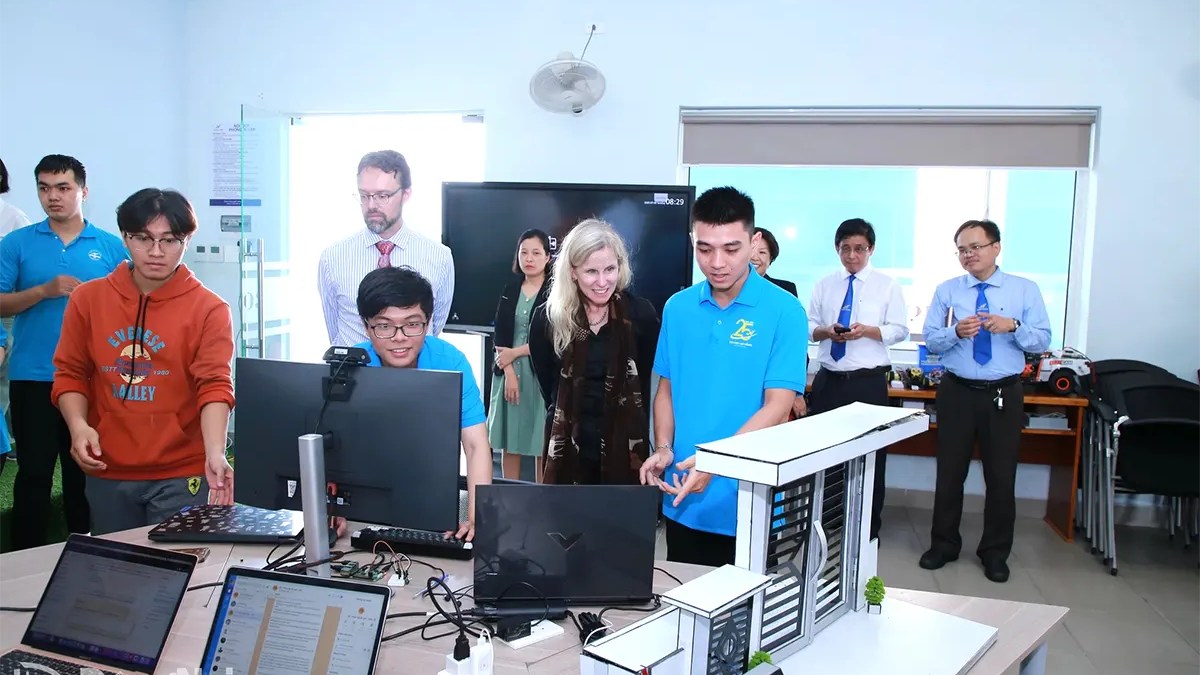

































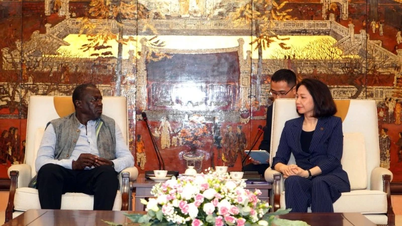








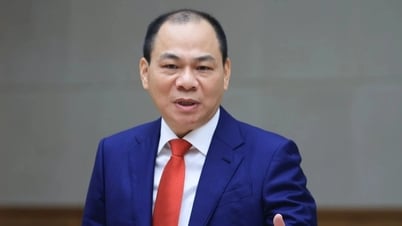








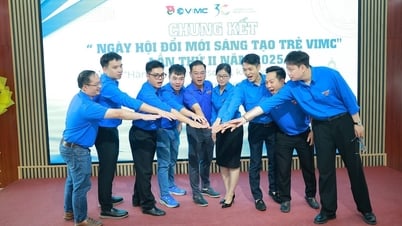





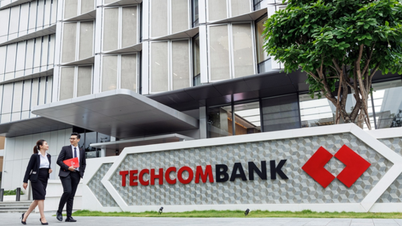






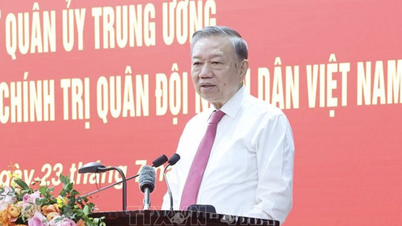






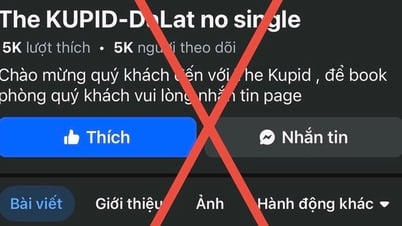
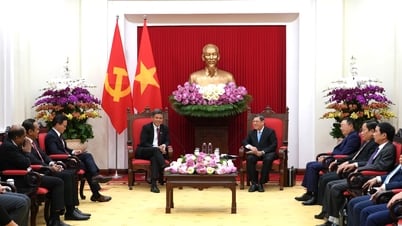
























Comment (0)